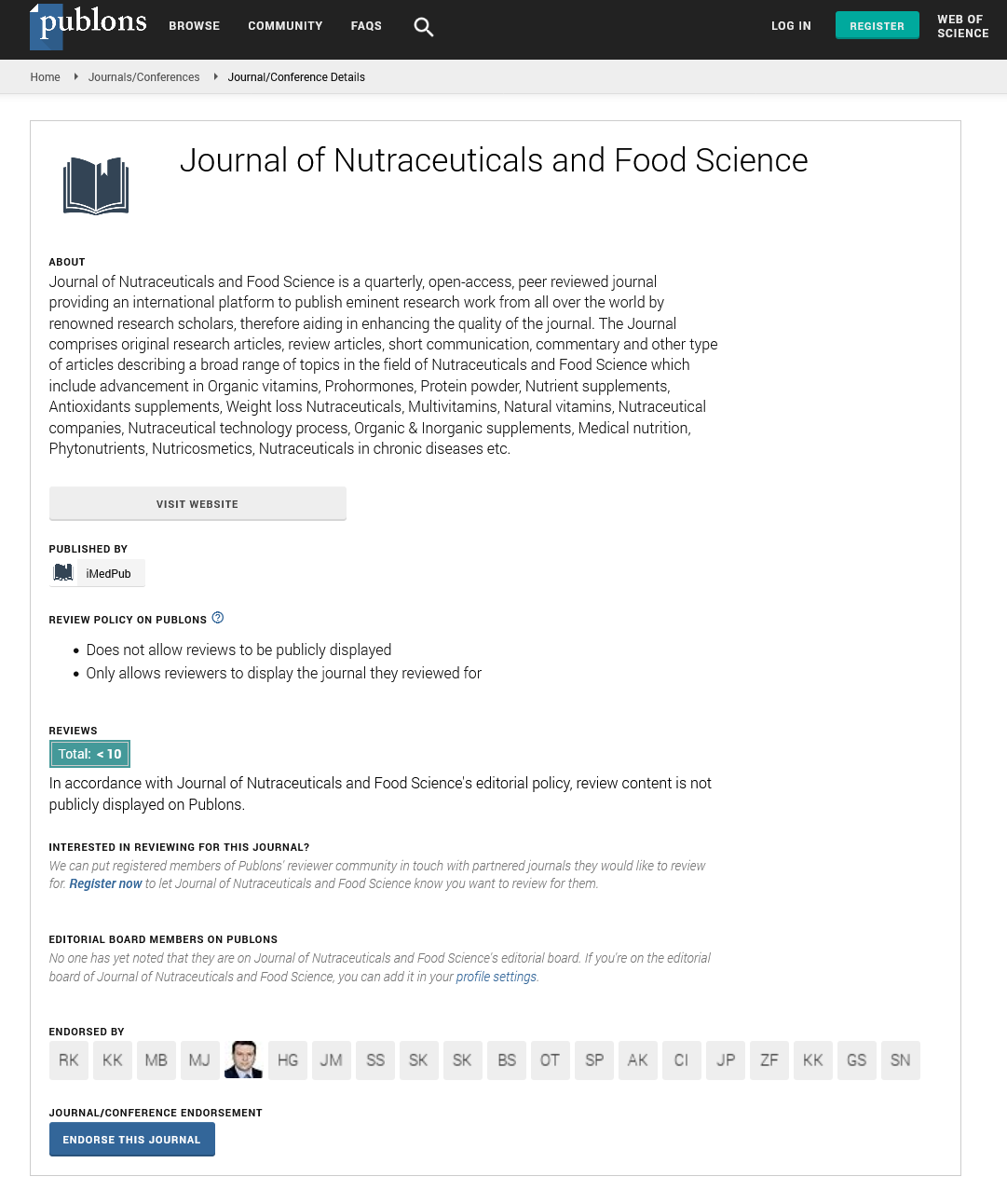Abstract
Review for Role of Nutraceuticals in Neurodegenerative Diseases
The neurodegenerative disorder NDDs includes Parkinson’s disease (PD), Alzheimer’s disease (AD), Huntington’s disease (HD), prion disease; motor neuron disease (MND) characterized by intense memory loss enough to interfere with social and occupational execution. It is the most general form of dementia, affecting more than 20 million people worldwide. Posed lifestyle changes are associated with drastically increased risk of chronic illness and diseases, posing a substantial healthcare and financial burden to society globally. The treatments of neurodegenerative disorder are through cholinesterase inhibitors or NMDA-receptor antagonists, while doubts remain about the therapeutic efficacy of these nutraceutical product such as fruits, vegetables, grains, meat, fish, eggs, minerals, carbohydrates, Flavonoids, Carotenoids, Crocin, Cyanidin, Luteolin, Quercetin and Kaempferol, Withanine, Asiatic Acid, Bhilavanol A and Bhilavanol B, vitamin B3, vitamin B9 or folate, vitamin B12, vitamin B6, vitamin D, vitamin E, and vitamin C, Omega-3 Fatty Acid Molecules, N-acetyl Cysteine , S-adenosyl Methionine, L-Tryptophan/5-HTP, Zinc and amino acid-based compounds, as the origin for every nutraceutical is different depending on the natural source and this phytochemical have been used in the treatments neurodegenerative diseases. the demand of nutraceuticals is widely increasing to combat neurological interventions. An association between food habits and the individual lifestyle with neurodegeneration has been manifested, thereby proposing the role of nutraceuticals as prophylactic treatment for neurological interventions. The current review covers some of the major neurological disorders and nutraceutical therapy in the prevention of disease.
Author(s):
Roshan Khetade*, Sangita Bhasme , Ravi Kalsait, Namarata Mane, Ranjeet Ambad, Neelam Khan, Narendra Dighade
Abstract | PDF
Share this

Google scholar citation report
Citations : 393
Journal of Nutraceuticals and Food Science received 393 citations as per google scholar report
Journal of Nutraceuticals and Food Science peer review process verified at publons
Abstracted/Indexed in
- Google Scholar
- Publons
- Secret Search Engine Labs
Open Access Journals
- Aquaculture & Veterinary Science
- Chemistry & Chemical Sciences
- Clinical Sciences
- Engineering
- General Science
- Genetics & Molecular Biology
- Health Care & Nursing
- Immunology & Microbiology
- Materials Science
- Mathematics & Physics
- Medical Sciences
- Neurology & Psychiatry
- Oncology & Cancer Science
- Pharmaceutical Sciences


